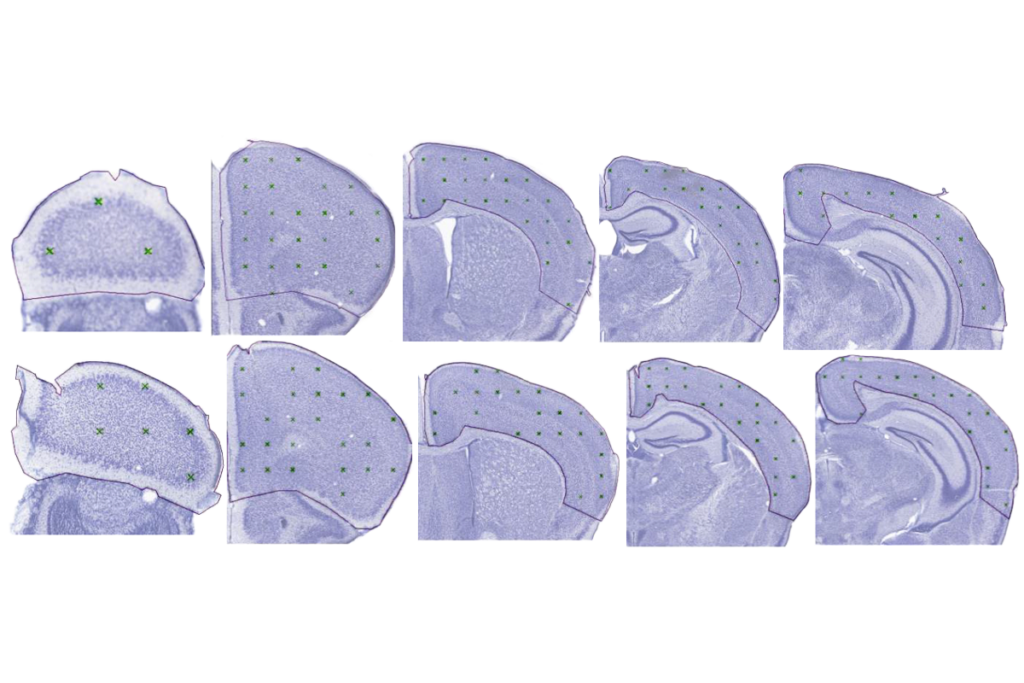Early tests predict intellect in adults with autism
Intelligence quotients of toddlers with autism closely predict how they will fare as adults, reports a 17-year study published 9 December in the Journal of Child Psychology and Psychiatry.
Intelligence quotients (IQs) of toddlers with autism closely predict how they will fare as adults, reports a 17-year study published 9 December in the Journal of Child Psychology and Psychiatry1.
Tests administered between the ages of 2 to 3 years can also forecast whether high-functioning toddlers with autism will have average or higher IQs by age 19 — or even beat the odds and overcome their autism diagnoses, the study suggests.
“In the brighter kids, we think it does make a difference if parents start doing [interventions] right away rather than just waiting to see what happens,” says lead investigator Catherine Lord, director of the Institute for Brain Development at New York-Presbyterian Hospital.
The report joins a growing number of studies tracking people with autism over long periods of time. In particular, it may boost clinicians’ confidence that IQ assessments at age 2 or 3 years predict later abilities and behavior, and help clinicians advise parents on a child’s outlook.
“When you’re giving the diagnosis for the first time in a 2- or 3-year-old, the question that parents ask first is, ‘How are they going to be when they’re adults? How are they going to do through school?’” says Tony Charman, chair of clinical child psychology at King’s College London Institute of Psychiatry in the U.K., who was not involved in the study.
IQ tests only tell part of the story, however. It’s unclear why some of the high-functioning 2-year-olds in the study made great strides by age 3 and later grew out of their autism diagnosis, whereas most of the others did not.
“There are other factors that are operating that make the difference between a good outcome and a poor one,” says Patricia Howlin, professor emeritus of clinical child psychology at King’s College London’s Institute of Psychiatry,who was not involved in the study. “The challenge now is to look at what those factors are.”
Therapy lessons:
In the study, Lord and her colleagues evaluated 85 children with autism at ages 2, 3, 9 and 19 years. The children, assembled from four autism centers in North Carolina and an autism clinic in Chicago, took a battery of diagnostic tests that measured the severity of their symptoms, including repetitive behavior, and assessed whether they had acquired adaptive skills, such as learning to eat with a spoon by 2 years of age.
The study also assessed verbal intelligence, with tests asking children to respond to their own names or to follow spoken instructions, for example. In addition, the researchers tested nonverbal intelligence with tasks such as building complex block towers. The families provided information about any interventions and medication use.
“I’m impressed that [the researchers] have this nice, longitudinal period of time over 17 years and, in particular, the fact that they had multiple time points within that period where they assessed the child,” says Deborah Bilder, assistant professor of psychiatry at the University of Utah in Salt Lake City, who was not involved in the study.
When the study participants reached 19 years of age, the researchers divided them into groups based on their IQ scores. They placed the 53 children with a verbal IQ below 70 in the low-intelligence group and the 32 children scoring a 70 or above in the high-intelligence group.
In all, the researchers found that 2-year-olds who have low verbal and nonverbal IQ, poor adaptive skills and severe autism-related symptoms have an 85 percent chance of showing significant intellectual disability at age 19. At age 3, low verbal IQ alone predicted inclusion in the low-intelligence group for 91 percent of the low-scoring toddlers.
The predictive power of the IQ scores is weaker for children with scores in the higher range — at 2 years of age, IQ tests predict with 66 percent accuracy whether a child will stay in the higher IQ group; by age 3, the accuracy rises to 82 percent.
Children in this group gained an average of 23 points in verbal IQ between age 2 and 3. About half of the children received speech or behavioral therapy and other interventions that may have influenced the outcome, the researchers say.
Group predictions:
Strikingly, eight boys in this group who received some intervention no longer met the criteria for autism at age 19. At 3 years of age, these children were already showing a bigger drop-off in repetitive behavior and hyperactivity than the rest of the group. Among those who retained their diagnoses, about half had received some form of intervention.
The results underscore the importance of early intervention in the long-term outcome of a child with autism, the researchers say.
“We have to be cautious with the small numbers,” says Lord. “But all eight of these young men’s families had immediately started doing something after getting a diagnosis.”
Although encouraging, the study does not prove that therapy alone improves autism outcomes, says Bilder. Family support or access to a good education, for instance, may also play a role. “It’s a promising thing that the interventions that we are advocating for children can make a difference, but it merits prospective study,” she says.
The eight children who lost their diagnoses showed such dramatic differences that Lord and her colleagues partitioned them into what Lord calls the ‘very positive outcome’ group.
These children didn’t outgrow their autism diagnosis until their teenage years. None of them take medications for psychiatric problems, unlike some of those in the high-intelligence group who retained a diagnosis of autism. They are more adaptive, social and independent than the rest of the group.
In contrast, many of the other young adults in the high IQ group have trouble with day-to-day living — they may struggle to decide how to spend money or when to get a haircut or change clothes, for instance.
Daily functioning also remained difficult at age 19 for the 53 individuals in the low-intelligence group. Still, their adaptive skills improved substantially with time, indicating that factors other than IQ are at play.
“Even kids who have significant cognitive impairments can do more to be independent if they receive good education and their families help them,” Lord says.
References:
1: Anderson D.K. et al. J. Child Psychol. Psychiatry Epub ahead of print (2013) PubMed
Recommended reading

INSAR takes ‘intentional break’ from annual summer webinar series

Dosage of X or Y chromosome relates to distinct outcomes; and more
Explore more from The Transmitter
Xiao-Jing Wang outlines the future of theoretical neuroscience

Memory study sparks debate over statistical methods

